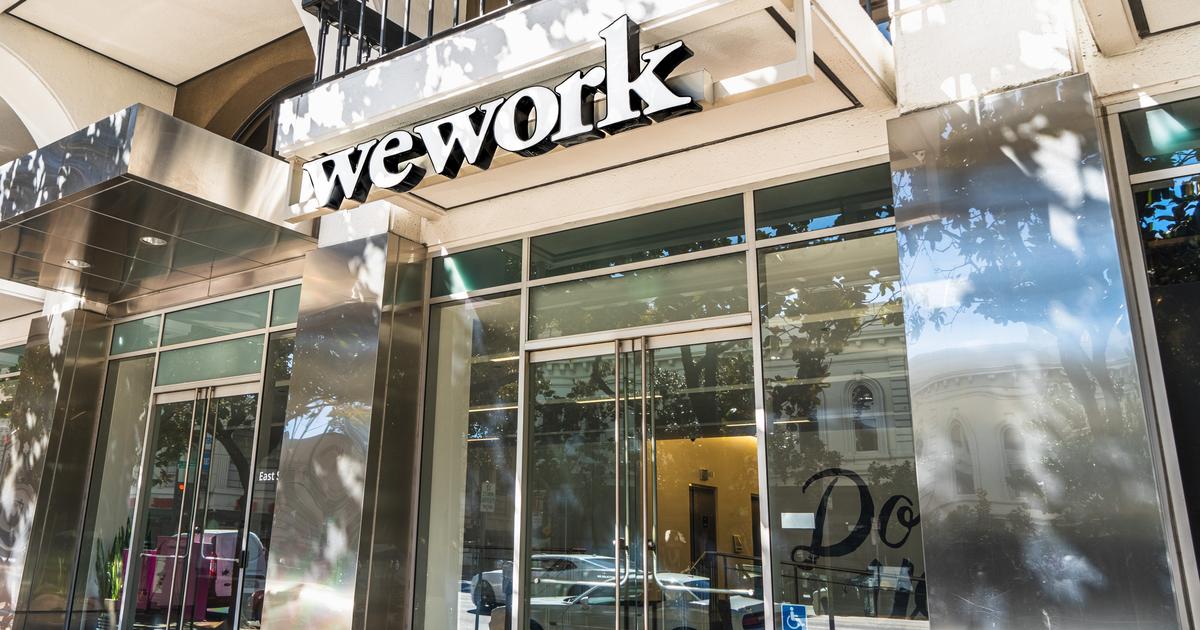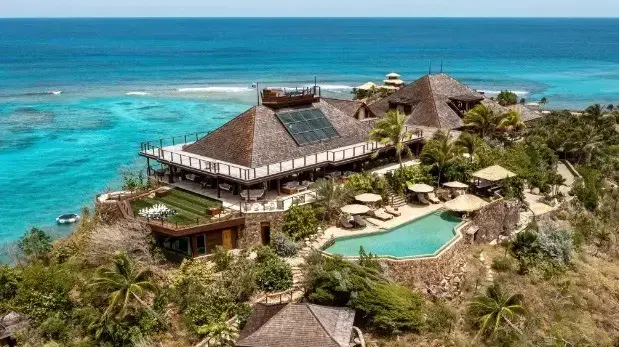At least the starting signal was spectacular. Virgin Galactic celebrated its US flotation on Monday with cracking fireworks on the New York Stock Exchange (NYSE) floor. It was the first time in NYSE history that guns were allowed here - for now, a listing of a commercial space company.
To kick off the company founder, the British billionaire Richard Branson, squeezed into a blue overalls, rang a golden bell. CEO George Whitesides, a former NASA manager, stood by. Under the ticker symbol SPCE, a new stage of the race into space began: Already next year, Virgin Galactic wants to hunt the first 66 private customers into space. Passenger # 1: Branson. The start of the long journey, however, was timid: the stock closed at $ 11.75, slightly below the entry level.
In an interview, Virgin Galactic boss Whitesides talks about his planned space travel with his wife, the safety risks of astronauts and billionaire dreams.
SPIEGEL: You and your wife have been waiting since 2006 to spend your honeymoon as the first couple in the world in space. The ticket has not expired yet?
George Whitesides: Well, if you can talk about honeymoon after so many years. We booked that at Virgin Galactic back then, I want to go to space, it's a lifelong dream, like many of our clients. Now it finally comes within reach.
SPIEGEL: When?
Whitesides: We belong to the first group. We are waiting for Richard, who will fly first in the middle of next year. This will be a milestone for the company and the whole space industry.
SPIEGEL: You have a lot of experience with NASA, where you were Chief of Staff. What are the advantages of a commercial private company to a state space agency?
Whitesides: Both are great in their own way. NASA is a major government agency with an annual budget of $ 21 billion and hundreds of thousands of employees, counting the contractors. Virgin Galactic is a small team that wants to change the world, we are leaner and more purposeful.
photo gallery
6 pictures
"VSS Unity": 30 seconds of rocket propulsionSPIEGEL: Virgin Galactic, SpaceX, Blue Origin - Numerous companies are working on space dreams: Are we at the beginning of a new era?
Whitesides: I often talk to young people in the industry, which really is the most exciting time since the Apollo program. And in a way, we have more options today. At that time there was only one state program, now there are several and also private, and that makes everything very exciting.
SPIEGEL: A new generation of space nerds.
Whitesides: We need more space nerds! We have to fill up the rows again. No more with just old nerds like me ( laughs ).
SPIEGEL: But it remains an expensive pleasure. A round trip with Virgin Galactic costs $ 250,000.
Whitesides: In the end the price will probably be a bit higher.
MORE ON THE SUBJECT
SPIEGEL: If you had the money, what would your pitch be? What do you offer for that?
Whitesides: This product sells almost by itself. People have been dreaming of getting into space for centuries. It will be an absolutely amazing experience. This starts with getting real astronaut badges. They officially become astronauts. Then you will spend three days training at Spaceport America, our New Mexico spaceport, before flying off. You will get to know your crew. And on the fourth day your mission will start into space.
SPIEGEL: How can you imagine them?
Whitesides: Exciting and stunning and life-changing. They will look down on their home planet. Earlier astronauts and cosmonauts have told us of this tremendous moment of personal transformation, how it has fundamentally changed their relationship to the planet.
SPIEGEL: The best thing would be to send every human being into space, if that changes their view of life.
Whitesides: Yes, right? At least all heads of state and leaders, so that they look at things from a different perspective.
SPIEGEL: Virgin Galactic had security issues, even though those are a few years back. The NASA had its own disasters. Can one even guarantee that nothing will ever happen?
Whitesides: We feel really good with the spacecraft that we developed. It has now ten years of test flights behind it. You want to learn during a test program, and sometimes these are just hard, hard, hard lessons.
REUTERS
SPIEGEL: Risk to life has been calculated?
Whitesides: Look back at the Apollo program, which had a fatal accident, Apollo 1, at the beginning, and other problems later on. I do not want to talk it down, but we have a remarkably robust architecture and the simplest rocket motor ever developed for manned spaceflight. I will fly with it. Richard will fly with it. Our investor Chamath Palihapitiya, head of our partner company Social Capital Hedosophia (IPOA), will fly with it.
SPIEGEL: Why did it take three billionaires like Sir Richard Branson, Elon Musk and Jeff Bezos to get the space business back on track? Is it the money or the creativity or just the sense of the crazy?
Whitesides: It's courage, determination, innovation. They recognize the potential to change the planet. You can cut costs, for example through the reusability of spaceships. And then I think it's also a bit of childlike inspiration. Space is for the best of humanity.
VRIGIN GALACTIC / HANDOUT MANUAL / EPA-EFE / REX
"VSS Unity", the spacecraft of Virgin Galactic, during a test flight in February
SPIEGEL: You have chosen a somewhat unusual form of IPO, the merger with IPOA, an already listed Silicon Valley company. Why?
Whitesides: There are several ways to go public. The traditional route, an initial public offering (IPO), takes 18 to 24 months, and everything can still burst on the last day. Our method has the advantage that the money is already there, and they can do it all in under six months. For us it was basically three or four months.
SPIEGEL: But you are still far from profitable, and in the first half of 2019 you had a net loss of $ 90 million. How does that continue?
Whitesides: We are not profitable. We've had virtually no revenue so far, except for two flights we did for NASA. First revenue is generated when we start with the manned flights.
SPIEGEL: Nevertheless, that will only remain a luxury market for now.
Whitesides: Yes - but the more customers we find, the more we can lower prices and attract new customers.
SPIEGEL: As with the Concorde.
Whitesides: Right. Consider how expensive a transatlantic flight used to be in the hundreds of thousands of dollars. Now you get a ticket for 1000 or 500 dollars.









